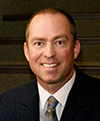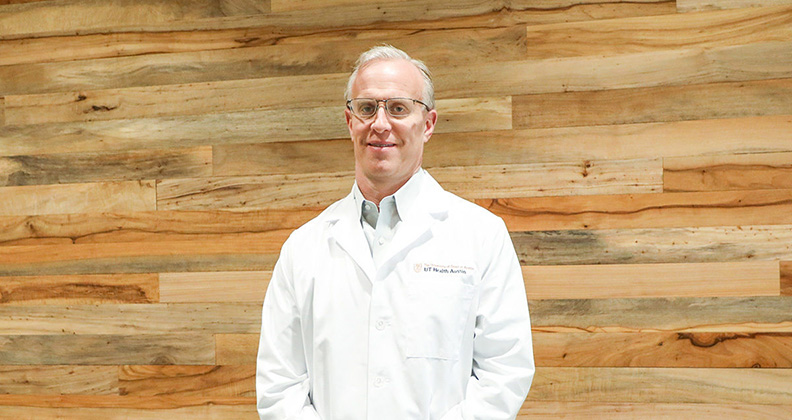
BONEZONE looked back on some of the orthopaedic surgeon interviews conducted throughout the year to see what they had to say about the direction of the industry. Here, we recap four of those insights.


Orthopaedic hand surgeon
President/CEO of Virak Orthopedics
Tan’s DigiFix External Fixation System received 510(k) clearance in January 2014 – the first
for Virak Orthopedics.
“With the aging population, there’s no question that people (the elderly) will have more orthopaedic injuries. That’s just the nature of the beast. If anything, we’re probably going to have a shortage of orthopaedic surgeons in the future. Patients will ultimately drive the innovations. Here in the West, we have the best technology out there and patients still demand it. I don’t think that’s going to change.
“Smaller, more mobile companies are the ones that are going to make more of a contribution to the orthopaedic device world. The big companies aren’t going to go away, but what’s happening, in my opinion, is that the big companies all have the same products. They’re competing in the same market with the same products, and they’re just trying to win over a couple of market shares from the competitors. You can’t just have the same thing, or ten to 20 of the same; you have to have something that’s better. Different is not enough—it has to be different and better.”


Orthopaedic joint reconstructive surgeon
Owner of Bonutti Technologies and The Bonutti Clinic
Bonutti has worked with companies like ArthroCare, Biomet, Medtronic and Stryker, to name a few. He founded his company and clinic, which houses its own research center, Bonutti Research, in 1989.
“(There is a) drive for less invasive procedures, outpatient surgeries and pain management for faster recoveries. Technologies that revolve around robotics are coming to the forefront. The direction and focus is toward improving patients’ perceptions of quality of care. Much of that revolves around less pain, faster recovery and more outpatient procedures – that’s where musculoskeletal care is heading.
“If you can develop techniques and technologies that address patients’ concerns, you’ll offer value and quality and meet patients’ expectations – if you can do that, you’ll be successful.”


Orthopaedic sports medicine surgeon
Founder of Rhode Orthopedic Group (RōG) and Orland Park Orthopedics Center for Sports Medicine
RōG is a value-based shoulder implant manufacturer, focused on providing stable technologies to reduce costs. Rhode also offers an “all-in” single fee for outpatient surgical procedures he performs.
“The person who can align the physician with the hospital/surgery center to quote a bundled price for a particular procedure is light years ahead of his nearest competitor. Once alignment has been achieved, efficiencies can be created to provide more value for the dollar.
“The sales rep who chases leads, develops relationships and manages inventory and instruments must be replaced with a more efficient supply chain. Someone needs to teach the hospital how to take back the responsibility of managing the implants and possibly owning the instruments. The manufacturer has to disrupt this expensive sales model with something more efficient. When price and quality are the driving factors, transparent presentations can be made online with simple follow up to trial and implement. There is a huge need for someone to link the supply chain, not unlike the Amazon model. Add to that a cloud-based RFID inventory management system, and hospitals and surgery centers can take back this responsibility with an accurate, cost effective (read: no new employees) solution.”


Orthopaedic shoulder and upper extremity specialist
Founder and Chief Innovation Officer of Shoulder Options, Founder and Director of Humphrey
Shoulder Clinic
Humphrey founded his company in 2007, just a year after opening his clinic in 2006. He is also a member of the surgeon design team for DJO Surgical.
“New regulations often create opportunities in unexpected places. The nimble surgeons and companies will recognize these opportunities and adapt. Government payors, insurance companies and hospital systems may attempt to limit their costs by quashing innovation through red tape, but trying to stop surgeons from innovating will be like trying to stop water from flowing downhill. Cookbook medicine based on algorithms cannot be used to successfully treat everyone. Ultimately, we surgeons are still providing an important service and there will always be patients who demand better outcomes through state of the art care.”


Orthopaedic foot and ankle surgeon
Associate Professor at Duke Univeristy and Clinical Advisor at Excelerate Health Ventures
“My opinion is that we’ll eventually start refining our treatments such that we won’t tell the patient, ‘You have a calcaneus fracture/Achilles tendon rupture; you do (or don’t) need surgery.’ I think we’ll start doing personalized treatments, taking into consideration the patient’s lifestyle, maybe even some of his genetic makeup and co-morbidities and take the approach of, ‘The data for this patient population suggests that you need surgery, while the data for this other population indicates that you don’t need surgery,’ and we will start doing personalized healthcare based on data that hopefully will continue to be available to us.”




